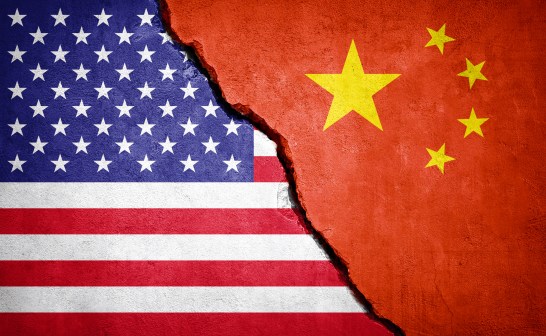Drone parts recovered from Iranian proxy group attacks trigger latest US blacklist of Chinese companies

The U.S. government added 29 entries to its Entity List this week, including 16 located in China that were determined to be sourcing and supplying military drone parts to Iran and its proxies.
Those addresses and entities will now be subject to stringent export license requirements for certain items — with applications “reviewed under a presumption of denial” — after reportedly engaging in activities that go against America’s foreign policy interests and national security, according to a post in the Federal Register on Wednesday.
“The End-User Review Committee (ERC), composed of representatives of the Departments of Commerce (Chair), State, Defense, Energy and, where appropriate, the Treasury, makes all decisions regarding additions to, removals from, or other modifications to the Entity List,” it states.
This latest batch of entries contains 26 entities and three addresses. Of those, 19 are listed under the destinations of China, nine are under Turkey, and one is located in the United Arab Emirates.
In the announcement, officials said that five Chinese entities were placed on the list “based on information indicating that around October 7, 2023, Israel Defense Forces recovered numerous weaponized unmanned aircraft vehicles (UAVs) operated by Iranian proxies, including Hamas militants.”
The Palestine-based rebel group launched an assault against Israel on that date, sparking a war in Gaza. On Thursday, President Donald Trump suggested that Israel and Hamas agreed to the first phase of a ceasefire deal that could bring an end to the two-year conflict.
“Exploitation of the recovered UAV debris identified multiple U.S.-origin electronic components. Information indicates that these entities facilitated the purchase and procurement of some of these electronic components,” the document in the Federal Register stated. “The procurement of U.S.-origin electronic components for Iranian proxies is contrary to U.S. national security and foreign policy interests.”
Those five entries include: Easy Fly Intelligent Technology Co., Ltd; Feng Bao Trading Hong Kong, Ltd; Feng Bao Electronic Information Technology (Shanghai) Co., Ltd; Shanghai Bitconn Electronics Co., Ltd.; and Shanghai Langqing Electronic Technology Co.
Ten other China-based entities were also added to the Entity List this week for allegedly facilitating the purchase of some U.S.-origin electronic components found in debris that was collected by nations in the Middle East region — from “numerous weaponized unmanned aircraft systems (UAS) operated by Iranian proxies, including Houthi militants” — since 2017.
Before a ceasefire was set in May, the Yemen-based Houthis used drones and other weapons to disrupt global shipping routes in the Red Sea in protest against Israeli’s military operations in Gaza, via a wave of attacks that began in November 2023.
Those 10 additions were: Arrow China Electronics Trading Co., Ltd.; Arrow Electronics (Hong Kong) Co., Ltd.; Beijing Kevins Technology Development Co., Ltd.; Beijing Plenary Technology Co., Ltd.; Beijing Rageflight Technology Co., Ltd.; Gansu Shuili Hoisting Equipment Co., Ltd.; Jinan Xin Yin Bo Electronic Equipment Co. Ltd.; Schmidt & Co., (HK) Ltd.; Shangdong Xin Yin Bo IOT Technology Co. Ltd.; and Shanghai Sisheng Power Control Technology Co., Ltd.
Further, the Federal Register notice states that “the ERC determined to add Goodview Global, under the destination of China, to the Entity List” because it is allegedly “part of an illicit procurement network that supplies components, including UAV components, to front companies of the Islamic Revolutionary Guard Corps’ Qods Force.”
The IRGC-QF is a primary branch of the Iranian Armed Forces. Officials noted that the Treasury Department’s Office of Foreign Assets Control sanctioned the IRGC-QF in 2007, “for providing material support to the Taliban and other terrorist organizations.”
On Thursday, China’s commerce ministry reportedly indicated that it had added 14 foreign organizations, including multiple U.S. companies, to its “unreliable entity list.”




